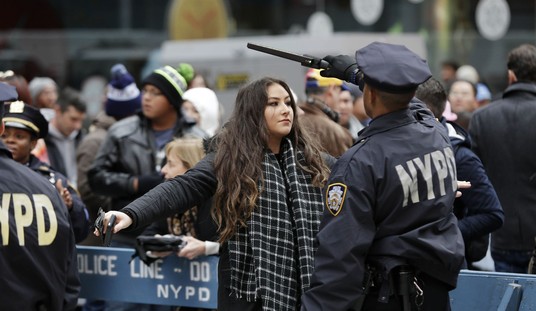A Dutch court has acquitted a doctor charged with violating the 2002 law governing euthanasia. The unnamed doctor administered lethal medication to a dementia patient who had previously indicated her desire for the procedure but didn’t follow through. Her family held her down while the doctor drugged her coffee.
I am not a big believer in “slippery slope” arguments. There are too many unknowns to say that “A” will lead to “B” which means “C” will happen.
But if there is such a thing as a “slippery slope,” on euthanasia, this is it.
The Dutch have been pioneers in the business of euthanasia. In 2004, the Dutch medical society adopted the Groningen Protocol that gave doctors the right to euthanize “severely ill” children — even without the consent of the parents.
Back then, I wrote:
I vividly remember the debates about the Oregon “Right to Die” law back in 1994. At that time, the assisted suicide lobby paraded dozens of patients that wished to end their lives for a variety of reasons; some were not even terminally ill. We were warned at that time by right to life groups that it was a short step from assisted suicide to euthanizing people without their permission and against the judgement of their families.
It appears we’ve arrived at an inflection point in the euthanasia debate. And here in the U.S., the push is on once again to make assisted suicide legal.
The acquittal comes just before Maine becomes the ninth state to legalize assisted suicide. Matthew Valliere, executive director of the anti-assisted suicide Patient Rights Action Fund, called the death a tragedy, adding that euthanasia laws are ripe for abuse.
“The legalization of euthanasia and assisted suicide has led to tragic abuses both abroad and here in the United States,” he said. “Patient autonomy erodes away when doctors, insurers, and a profit-driven health care system make qualitative judgments on whether a person’s life is worth living. It’s time to abandon this cruel practice.”
It should be noted that U.S. assisted suicide advocacy groups do not condone the Dutch doctor’s actions. They do not support euthanizing dementia patients. But where to draw the line?
Euthanasia opponents don’t want to find out:
Kris Hanson, a widow of the assisted-suicide opponent J.J. Hanson, called the decision to acquit a “second tragedy” in the Netherlands. She said assisted suicide has expanded in scope since the 2002 law was adopted. The law originally limited euthanasia to those aged 12 or older, but the country has since extended permission for doctors to euthanize infants. The “unbearable suffering” standard of the practice has increasingly been used by those citing psychiatric problems, rather than a terminal illness. Hanson pointed to the dementia patient as a warning sign of what could happen if assisted suicide spreads in the United States.
“Her death was anything but voluntary,” Hanson, a community relations advocate at the Patients Rights Action Fund, said. “The United States should take note of where the practice of euthanasia and assisted suicide has led in other places and avoid this dangerous path.”
But these are exceptions to the rule, defenders of euthanasia might say. It will be different here.
Sorry, but I don’t see it. Current U.S. practice allows doctors to give a patient a lethal drug to be administered by the patient themselves. But a blind man can see how easy it would be to justify placing the needle in the hands of the doctor. Euthanasia has its own logic and going from patient-assisted suicide, to doctor-assisted suicide, to relatives holding down a loved one to be killed is not impossible to imagine.










Join the conversation as a VIP Member